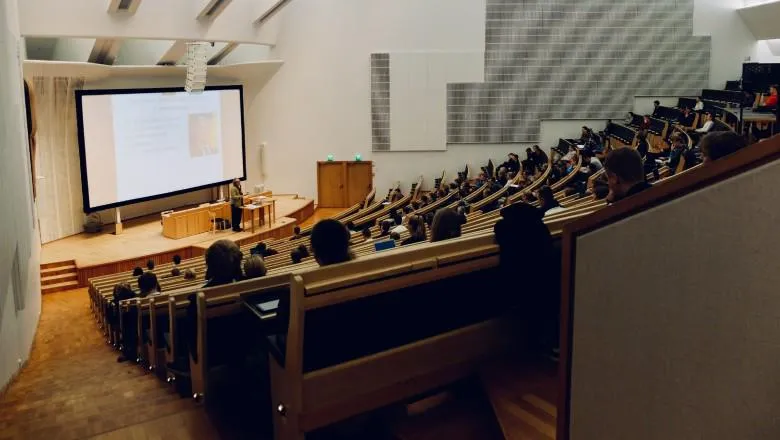
Jessi Johnson
PhD Candidate in Education, Communication and Society
Research interests
- Education
- Equality
- Impact
- Public and Community Engagement
Contact details
Pronouns
she/her
Biography
Jessi Johnson is a PhD candidate in the School of Education, Communication, & Society. Her three supervisors are Sharon Gewirtz, Tania de St Croix, and Duna Sabri. She holds an MFA from the University of Southern California (USC) in Professional Writing and a BA in International Development from the University of California, Los Angeles (UCLA). She worked as a Professor and Lecturer for 12 years in higher education institutions, focusing on writing, rhetoric, social science, justice, and communication. Her research on anti-oppression and student collaboration has been presented at international conferences; her policy recommendations for inclusive hiring practices are in use at universities; and she was the chair of her department's Diversity, Equity, Inclusion Committee. In 2021, she was awarded for Distinguished Service in Diversity, Equity, Inclusion Work by her university. In 2022, she was named a Master Teacher of her institution. And in 2023, she was awarded the Fulbright Grant for postgraduate studies to attend KCL. If you run into her at a party, she'll be talking about the dramatic true crime history of the graham cracker, rock climbing, or anime.
Thesis
The intersection of psychological safety, marking practices and the degree award gap in higher education
Abstract
Jessi's research investigates if reforming marking criteria and rubrics will positively impact the psychological safety of students; and if in the long-term, the change to marking and psychological safety will narrow higher ed's degree award gap. Marking has a significant influence on student academic performance, mental health, sense of identity, and future opportunities. That is partly because marking practices affect a student’s feelings of psychological safety: how safe it feels to make a mistake, how safe it feels to explore a new idea, how safe it feels to speak up when confused. In short: marking can make a class feel more safe or less safe. And when there’s a lowered sense of safety, performance outcomes might also lower. Unfortunately, disadvantaged students are affected by changes in safety the most, and are most likely to suffer academically because of it. When disadvantaged students feel unsafe in class because of marking practices, then the degree award gap could widen. The degree award gap is an urgent challenge. Solutions with the greatest chance to narrow the gap address historical and systemic factors – such as inequity, racism, and classism – that helped create it. Jessi believes that one of these solutions could be reforming marking practices. That’s because many marking practices are historically rooted in the same systemic inequities that sustain the degree award gap – so some of the ways university students are marked could be a reason that they fall victim to the gap.
Principal supervisor: Sharon Gewirtz
Secondary supervisor: Tania de St Croix
Research

Centre for Public Policy Research (CPPR)
The Centre for Public Policy Research is an interdisciplinary research centre research developing critical analyses of social change and social in/justice in education and other policy arenas, sectors and contexts to inform national and international policy debate, social activism, and personal, professional and organisational learning.

Mixed-Heritage Young People's Educational Experiences in London: An Exploratory Study
This project explores the educational journeys of mixed-heritage students (ages 18-25) within London’s diverse higher education institutions.
Project status: Ongoing
Events

How assessment practices can widen, sustain, and narrow degree awarding gaps
This HERG session will discuss how assessment practices can widen, sustain, or narrow the degree awarding gap.
Please note: this event has passed.
Research

Centre for Public Policy Research (CPPR)
The Centre for Public Policy Research is an interdisciplinary research centre research developing critical analyses of social change and social in/justice in education and other policy arenas, sectors and contexts to inform national and international policy debate, social activism, and personal, professional and organisational learning.

Mixed-Heritage Young People's Educational Experiences in London: An Exploratory Study
This project explores the educational journeys of mixed-heritage students (ages 18-25) within London’s diverse higher education institutions.
Project status: Ongoing
Events

How assessment practices can widen, sustain, and narrow degree awarding gaps
This HERG session will discuss how assessment practices can widen, sustain, or narrow the degree awarding gap.
Please note: this event has passed.
